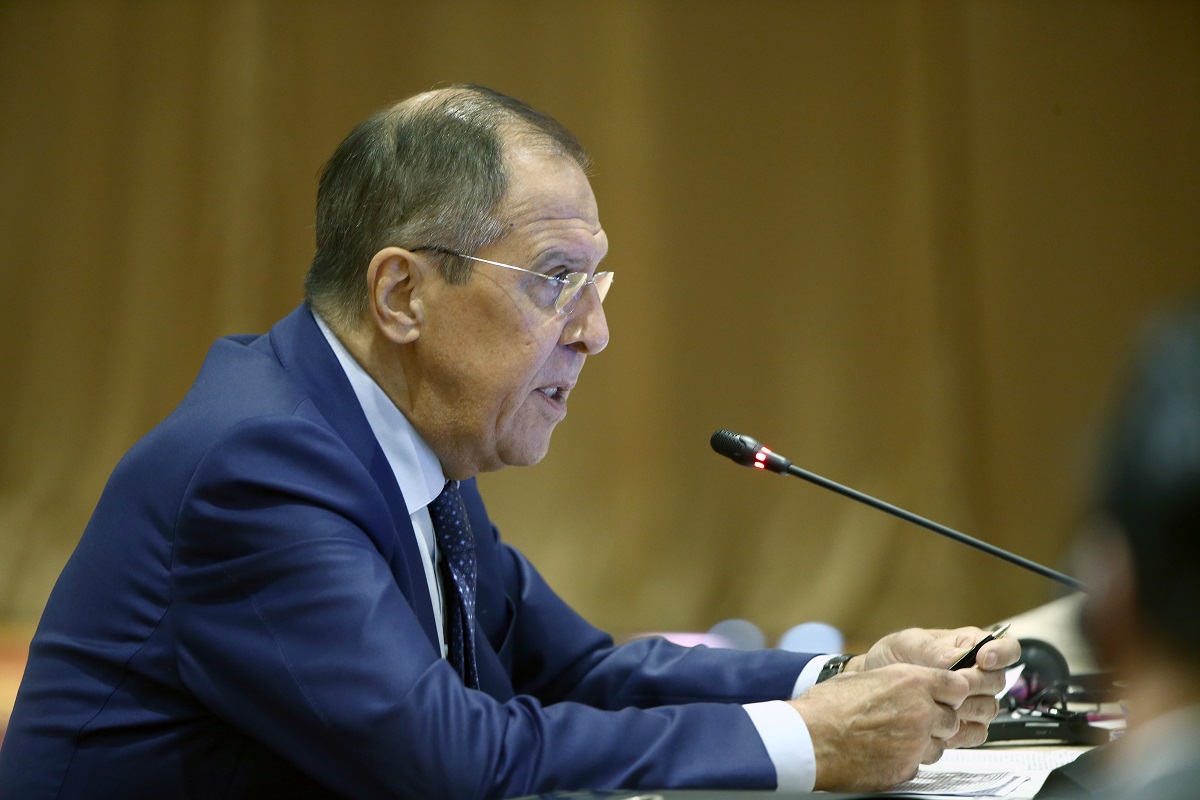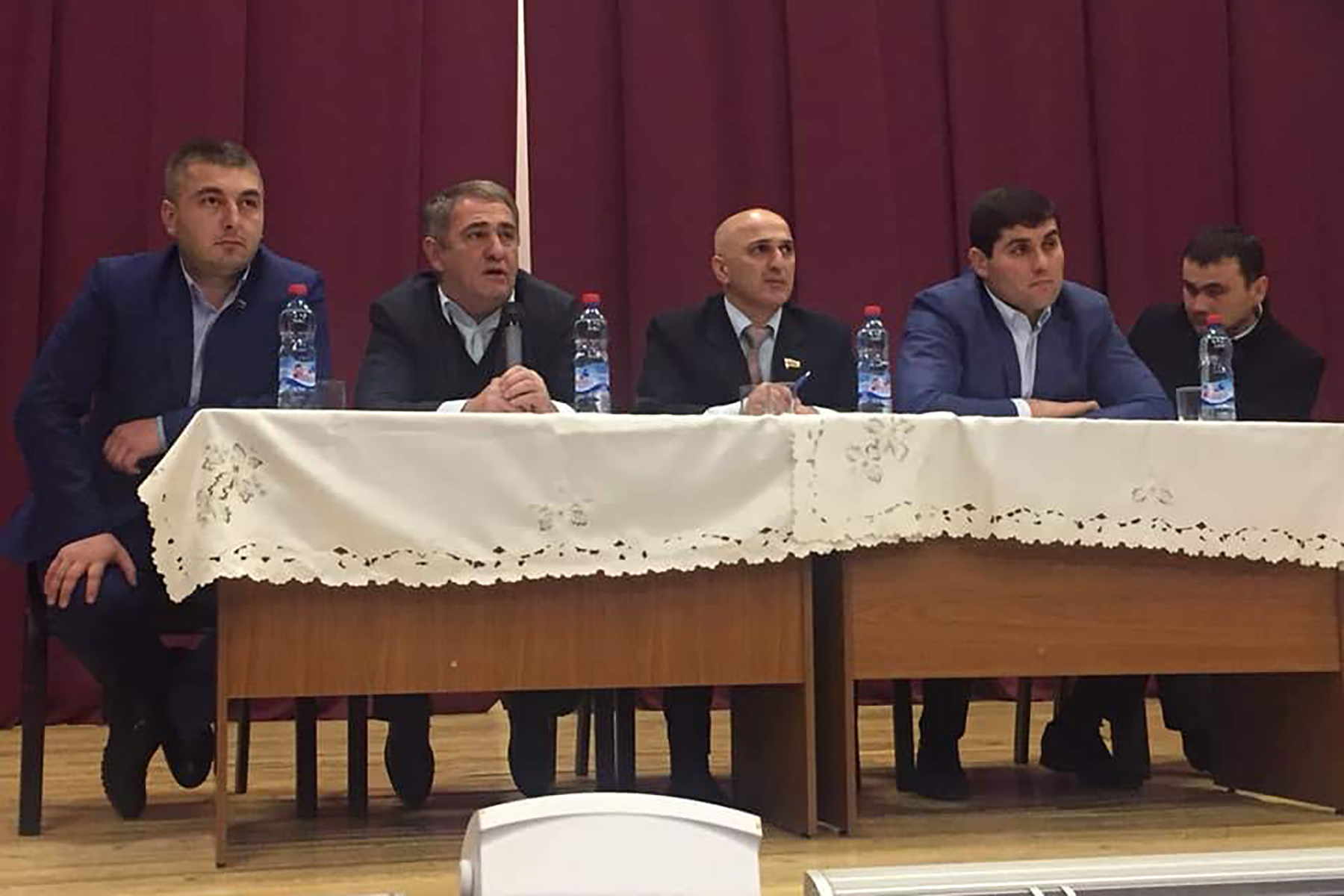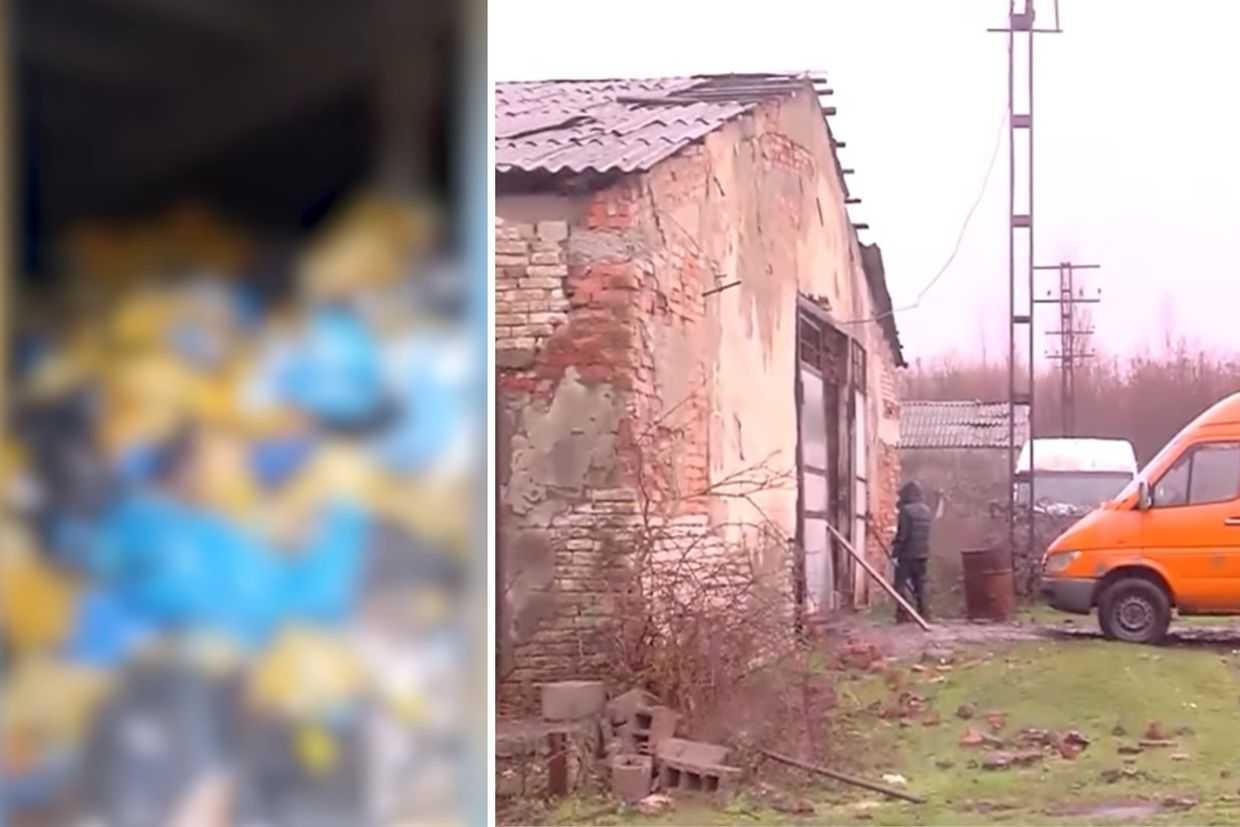

Russian Foreign Minister Sergey Lavrov has accused South Ossetia of overreacting to the erection of a new Georgian police checkpoint near the village of Tsnelisi (Uista) in South Ossetia.
In a press conference on Friday, Lavrov blamed the crisis on the Georgian authorities but added that South Ossetia’s response was ‘excessive as well’. He called for ‘both sides to show restraint’.
South Ossetian authorities responded to the crisis in late August by restricting all movement with Georgia-controlled territory ‘indefinitely’. At least one person has died after being denied permission to cross over for medical treatment in Tbilisi.
The dispute over the region between South-Ossetia-controlled Tsnelisi and the Georgian government-controlled village of Chorchana led to rising tensions over the summer.
A low-intensity dispute heated up in August after Georgian security forces erected the checkpoint in a forested buffer zone between the two villages.
The South Ossetian authorities reciprocated erecting their own checkpoint in Tsnelisi.
[Read more on OC Media: South Ossetia orders tit-for-tat checkpoint construction in latest border escalation]
While closing the Razdakhan and Sinaguri (Sinagur) checkpoints, the South Ossetian authorities and Russian border guards have also continued to arrest and fine individuals, frequently the local population, for ‘illegal border crossing’.
Georgian authorities have repeatedly demanded that the checkpoints be reopened at meetings of the Incident Prevention and Response Mechanism (IPRM) but South Ossetian authorities have insisted this was conditional on the removal of the Georgian checkpoint.
The IPRM meetings, which have only been of a ‘technical’ nature since the crisis began, are co-facilitated by the OSCE and the European Union Monitoring Mission in Georgia (EUMM), an unarmed civilian mission in Georgia since 2008.
In mid-October, several EUMM monitors were briefly detained by South Ossetia security forces.
In his press conference, Lavrov called the crisis near Tsnelisi a ‘confirmation’ of the need to delimitate and demarcate the ‘border between Georgia and South Ossetia’.
Russia’s top diplomat also warned the US and NATO to stop ‘pushing Tbilisi toward confrontation with Moscow’ with their activities in Georgia.
Summing up the last year, Lavrov said that Russia had continued helping Abkhazia and South Ossetia ‘developing as democratic states’ and moved forward within separate bilateral intergovernmental commissions with both.
A humanitarian crisis
The stalemate has complicated the humanitarian situation in South Ossetia, especially among residents of South Ossetia’s Akhalgori (Leningor) District, predominantly ethnic Georgians.
Georgian authorities lost control over the district during the August 2008 War.
On 29 October, the EUMM criticised the South Ossetian authorities for closing the crossing points, saying it was ‘depriving local communities of prompt and adequate medical care’.
The statement came after the death of 70-year-old Akhalgori resident Margo Martiashvili, who was barred from crossing the border to receive medical treatment.
On 2 December, South Ossetia’s Security Council permitted residents holding ‘neither Russian nor South Ossetian citizenship’ to use the Razdakhan crossing to receive medical treatment or their pensions on Georgia-controlled territory.
Tamara Mearakishvili, a journalist and activist from Akhalgori, told OC Media, that this ‘only partially eased the situation for some very sick people’.
‘For some reason, if you are able to walk and are not on the verge of dying, even if you are very sick, you’re not [eligible].’
She said the South Ossetian authorities so far have permitted only 26 out of 72 retirees in Akhalgori to cross the checkpoints.
She said that tagging South Ossetian officials on Facebook sometimes helped as it spurred the media to ask more questions about what they were doing for Akhalgori residents.
‘They recently said they are working on it. I don’t know how they are working but if you fail to open a road for five months, you should at least provide food and medicine for people through Vladikavkaz or with the help of the Red Cross’, Mearakishvili told OC Media.
South Ossetian President Anatoly Bibilov visited Akhalgori on 26 December but was met with anger from local residents.

Bibilov reiterated that the removal of the Georgian checkpoint near Tsnelisi was the only precondition for opening the passes and insisted it was the only way to respond to ‘danger’ posed to the nearby population by the Georgian authorities.
According to Mearakishvili, the meeting caused even more frustration among Akhalgori residents.
She said that South Ossetian MPs who visited Akhalgori on 22 January suggested to residents that there was no solution for them except to gradually leave the region.
Paata Zakareishvili, who served as Georgia’s State Minister for Reconciliation from 2012–2016, said that Lavrov’s statement ‘could mean better conditions’ for solving the crisis.
Speaking to OC Media, Zakareishvili suggested that the ‘Russian leadership could be preoccupied with the growing discontent among Akhalgori residents due to the closure of the checkpoint passes.’
‘Especially illustrative was [South Ossetian President Anatoly] Bibilov’s meeting with them last month, and there were many representatives of the Russian army there who witnessed the popular mood. The word spreads fast and it could be the case that news about frustration among locals reached Lavrov.’
According to Zakareishvili, Russia would like to maintain stability in the area and to avoid a crisis.
‘The fact that there was that sort of question for Lavrov to answer — something that is usually prearranged and decided by the Foreign Ministry itself — and he spoke length and in details about this issue is not an accident.’
Zakareishvili did not rule out ‘some changes in the situation for Akhalgori residents’ soon.
For ease of reading, we choose not to use qualifiers such as ‘de facto’, ‘unrecognised’, or ‘partially recognised’ when discussing institutions or political positions within Abkhazia, Nagorno-Karabakh, and South Ossetia. This does not imply a position on their status.









